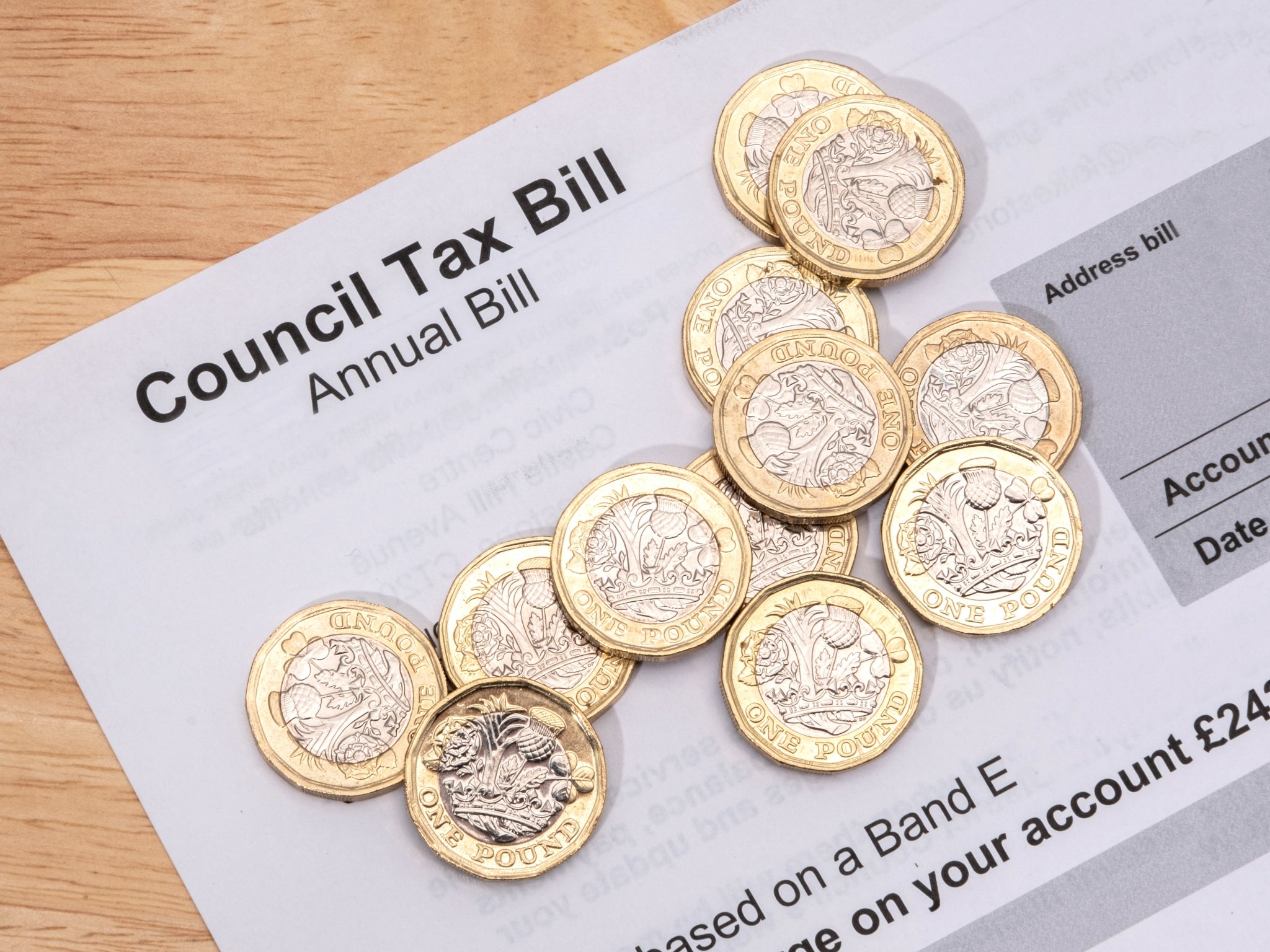How to get a council tax rebate as cost of living rises
Plus, everything you need to know about the government’s energy bill rebate scheme

The cost of living is going up and, earlier this year, households were told to expect to see an increase in energy bills by an estimated 54 per cent from 1 April.
It’s not just energy prices which have risen to the highest costs in living memory, but the price of everyday items have risen along with other bills such as internet and council tax.
In March, the government urged households to get ready for the £150 council tax rebate which they could claim by setting up a direct debit with their local council.
All 28 million households in the UK will be given a £200 rebate from the government towards their energy bill this year too.
What is a rebate?
A rebate is a partial refund to someone who has paid too much money in rent, for bills or for tax.
Through chancellor Rishi Sunak’s £9.1 billion government rebate package, this means some households will be eligible for a council tax rebate and a discount on their energy bills to help combat the cost of living crisis.
How do I get a council tax rebate?
Council tax is expected to rise an average of 3.5 per cent for most households across Britain in the 2022/23 year.
In an outline by the government, households were urged to set up direct debits with their local council in order to receive a £150 council tax rebate.
Those eligible who pay council tax by direct debit should have seen the rebate go into their bank accounts from April. Those who do not pay by direct debit should have been contacted in April and invited to make a claim.
The government says around 20 million households in tax bands A to D, including 95 per cent of rented properties, were expected to benefit from the £3 billion rebate. The rebate does not have to be repaid.
Councils will also be able to provide discretionary support to vulnerable households who may not qualify for the rebate, including those on low incomes in tax bands E to H.
The rebate for those in bands A to D will be available even if you pay a reduced amount of council tax, if you get Local Council Tax Support, do not pay council tax because you are exempt, if you get the Single Person Discount, and if you are behind on council tax payments.
Those in bands A to D won’t quality if it is their second property, if the property is empty, and if you are registered for the council tax of as the landlord of a house of multiple occupation.
Guidance from secretary of state for Levelling Up Michael Gove said: “The Government recognises that many households will need support to deal with the rising cost of household bills in 2022-23, driven by increasing energy bills. While these rising costs will affect most households across the country, they are more likely to disproportionately affect those on lower incomes, who tend to spend a higher proportion of their income on utility bills.
“To provide some immediate relief for these rising costs, while targeting those most likely to require support, the Government expects billing authorities to provide a £150 one-off payment to a liable council tax payer (or an occupant where the property is exempt) where they occupy a property which meets all of the following criteria on 2 April, 2022.”
To find out more about receiving a council tax rebate, visit the government’s website.
How do I get a rebate for my energy bills?
Every household in Britain is expected to receive a £200 up-front rebate on their energy bills this year. However, unlike the council tax rebate which won’t need to be paid back, the energy bill rebate will need to be paid back over time.
Energy customers will receive the rebate as a discount to their electricity bills from October, and there is no way to opt-out of the rebate — a move which has been criticised.
The rebate will be paid back over five years from 2023, with an extra £40 being added to household energy bills each year.
Earlier this year, energy regulator Ofgem announced an increase to the energy price cap, which will jump from £1,277 to £1,971 annually from April.
Experts urged householders to submit meter readings by 31 March ahead of the price cap increase as this would have prevented firms from estimating usage and charging for energy used before 1 April.
Why is the price of energy and council tax rising?
Britain’s inflation is rising at its fastest rate in three decades as the cost of bills, food and fuel has all surged in recent months.
In the 12 months to February, prices rose 6.2 per cent on average, but the Bank of England has warned inflation could hit double digits later this year if the energy cap rises further.
The main reason for this price rise is due to the rising global price of energy.
In particular, gas prices have seen a steep rise over the past year and businesses have seen higher petrol, energy and transport bills resulting in higher price points for customers.
The Office for Budget Responsibility’s bi-annual economic forecast also said that Russia’s invasion of Ukraine has had “major repercussions for the global economy, whose recovery from the worst of the pandemic was already being buffeted by Omicron, supply bottlenecks, and rising inflation”.
Subscribe to Independent Premium to bookmark this article
Want to bookmark your favourite articles and stories to read or reference later? Start your Independent Premium subscription today.

Join our commenting forum
Join thought-provoking conversations, follow other Independent readers and see their replies